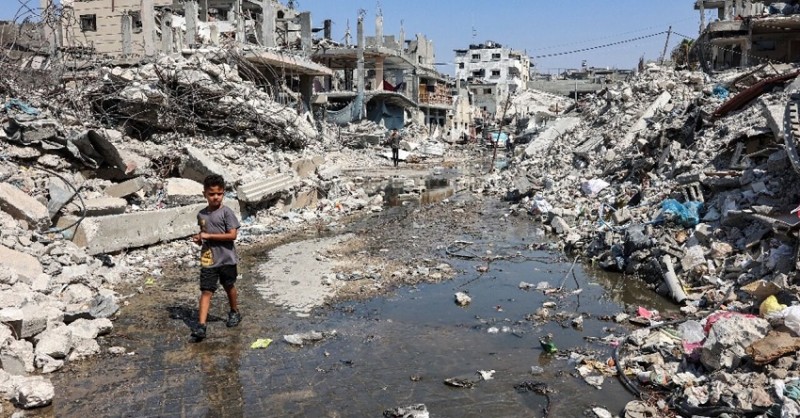
GAZA: Hamas has rejected the latest ceasefire proposal for Gaza, which was presented by US-led mediators during recent talks in Qatar. Despite ongoing diplomatic efforts over the past ten months, which have yet to alleviate the dire conditions in Gaza, US President Joe Biden remains optimistic, stating that a deal is now closer than ever.
President Biden announced that he will be sending US Secretary of State Antony Blinken to Israel this weekend to advocate for the proposed truce. The proposal builds on a framework initially outlined by Biden in May, which he indicated was put forth by Israel.
According to a joint statement from the mediators, including representatives from Egypt, Qatar, and the US, the new proposal aims to bridge the remaining gaps. They will continue to refine the details regarding humanitarian aid and the exchange of hostages and prisoners. The next round of talks is scheduled to take place in Cairo before the end of next week.
Hamas, which was not present at the Doha discussions, quickly voiced its opposition to the updated terms. The group criticized the new conditions related to the presence of Israeli troops on Gaza's border with Egypt and the terms concerning the release of Palestinian prisoners.
Israeli Prime Minister Benjamin Netanyahu has urged mediators to pressure Hamas into accepting the proposed framework. The urgency to reach an agreement has been heightened by threats from Iran and its allies, aiming to avoid a broader regional conflict.
President Biden emphasized the importance of maintaining focus on the negotiation process, stating that only a few issues remain and expressing confidence in a potential breakthrough.
Hamas’s objections include terms related to the continued presence of Israeli troops on Gaza’s borders and specific conditions about the release of Palestinian prisoners in exchange for Israeli hostages. Jordan, a Western ally, has criticized Israeli Prime Minister Netanyahu for obstructing the deal, calling for increased pressure on Israel to reach an agreement.
In parallel, British Foreign Secretary David Lammy and French Foreign Minister Stéphane Séjourné are in Israel to support the deal. Israeli Foreign Minister Israel Katz expects international backing if Iran retaliates for the assassination of Hamas leader Ismail Haniyeh in Tehran. Séjourné responded that discussing responses to potential attacks is premature while diplomatic efforts are ongoing.
The recent surge in violence has also prompted international condemnation. A late-night attack by Israeli settlers in the West Bank drew widespread criticism, including calls for sanctions against Israeli officials and government ministers involved in settler violence. The European Union’s top diplomat, Josep Borrell, proposed sanctions against those enabling such violence.
The conflict's toll continues to rise. Hamas reports that more than 40,000 people have been killed in Gaza due to Israel's military actions, although the exact breakdown between civilians and militants remains unclear. Additionally, the recent outbreak of polio in Gaza, confirmed as the first case in 25 years, has raised alarms about the deteriorating healthcare situation. The World Health Organization and UN chief António Guterres have called for emergency vaccination campaigns to prevent further disease spread.
As ceasefire talks continue, thousands of Gaza residents face fresh evacuation orders from the Israeli military, which has forced more than 170,000 people into an increasingly congested area. The UN has described the designated safe zone as inadequate, covering only 11% of Gaza's territory.
Amid these challenging conditions, Palestinian displaced persons, like Issa Murad from Deir al-Balah, have criticized the ongoing evacuations and military actions as exacerbating the humanitarian crisis.